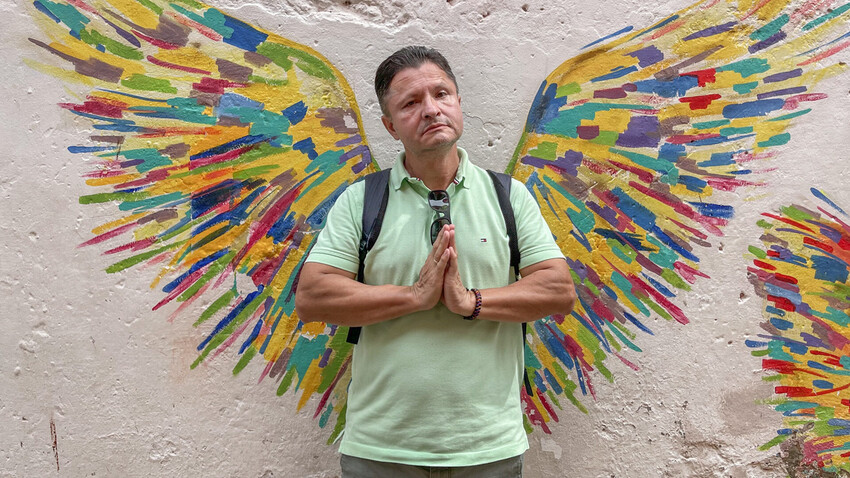
Humberto grew up in an ordinary Colombian family. However, his brother left to study in the United States and he also decided to go abroad, however, to Russia: "I always wondered how they lived under a different political system, which was demonized in our country."
Under the Colombian educational quota, Humberto went to study in the Peoples' Friendship University in Moscow. "In my homeland, I was told that they were training guerrillas who, when they returned home, would wage a liberation struggle."
In Russia, or then still in the USSR, Humberto immediately and forever fell in love with the Russian language and realized that it was his destiny.
"You can't imagine how proud I was of myself when I finally pronounced ‘Krzhizhanovsky Street’," he laughs.
"It was 1982. I got off the plane in Moscow and found myself in a different universe. People, customs, food, weather, architecture - everything was different. It also struck me that everyone on the subway was reading.
“Of course, there were some difficult moments, at first. I was put in a dormitory and it felt like a prison. Long corridors, dim light bulbs, stern faces…
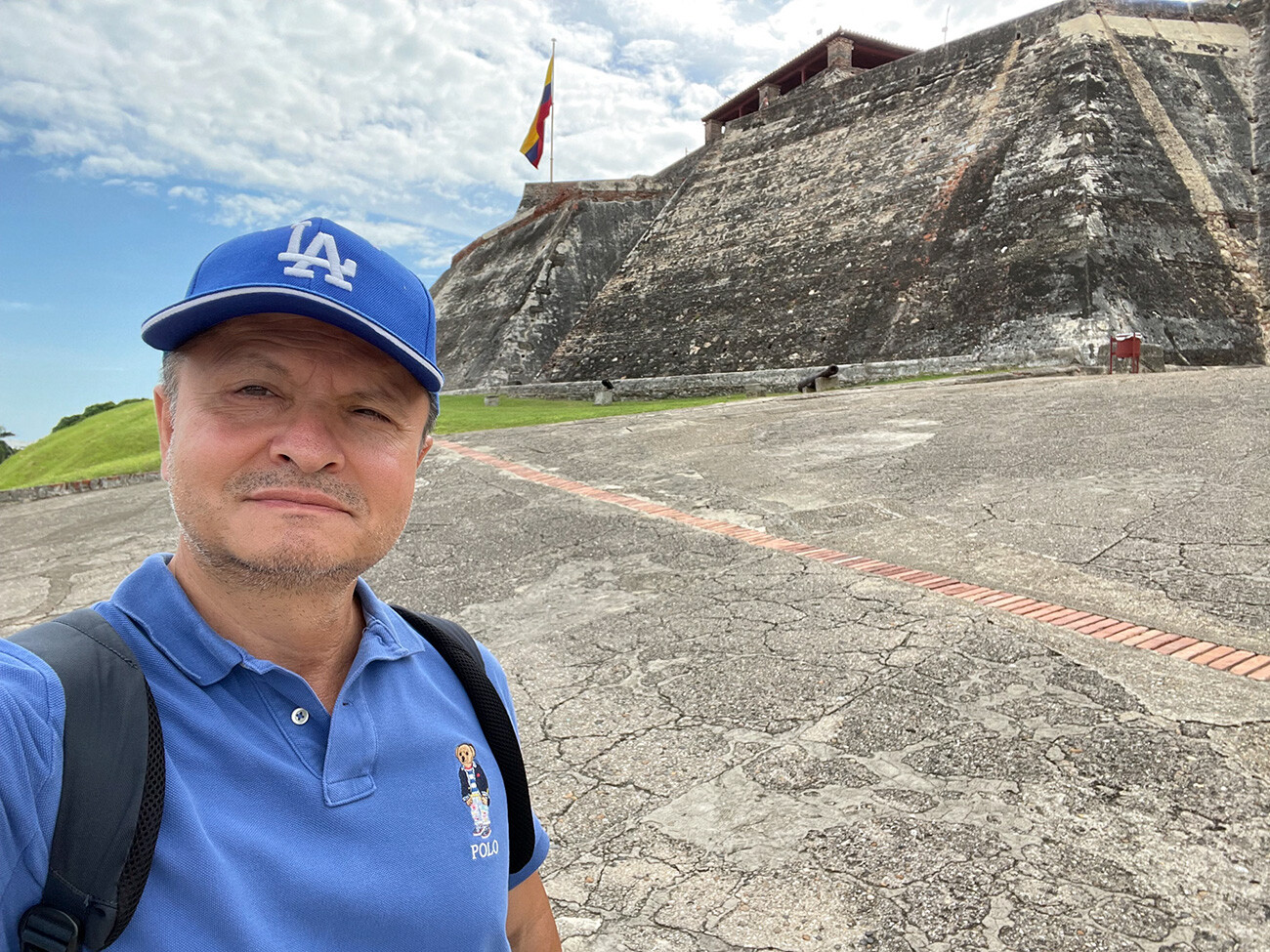
“Russian people, in general, are very serious at the beginning, you even think that they are offended or angry with you and it is not clear for what reason. The first shock was at customs: being a cheerful and happy guy, I was met by very serious people… But then, you begin to understand why everyone is so concentrated: because of the historical burden that weighs on them. And I realize this burden, I respect and accept the pathos that often accompanies the Russians.
“But you only have to enter the soul of a Russian person through a small window and they will become absolutely real to you, friendly, open and incredibly helpful.
“A Russian always wants to feed you and this is also a consequence of their difficult history."
In the first year, many of Humberto's fellow countrymen left, unable to stand the climate and the harsh Russian temperament. But, Humberto stayed. Now, he has dual citizenship and it seems to him that, over time, he has become more Russian than Colombian. He says he has become more concentrated, more responsible and has become a man of his word, who does not make up excuses. And, for sure, he’s become more calm.
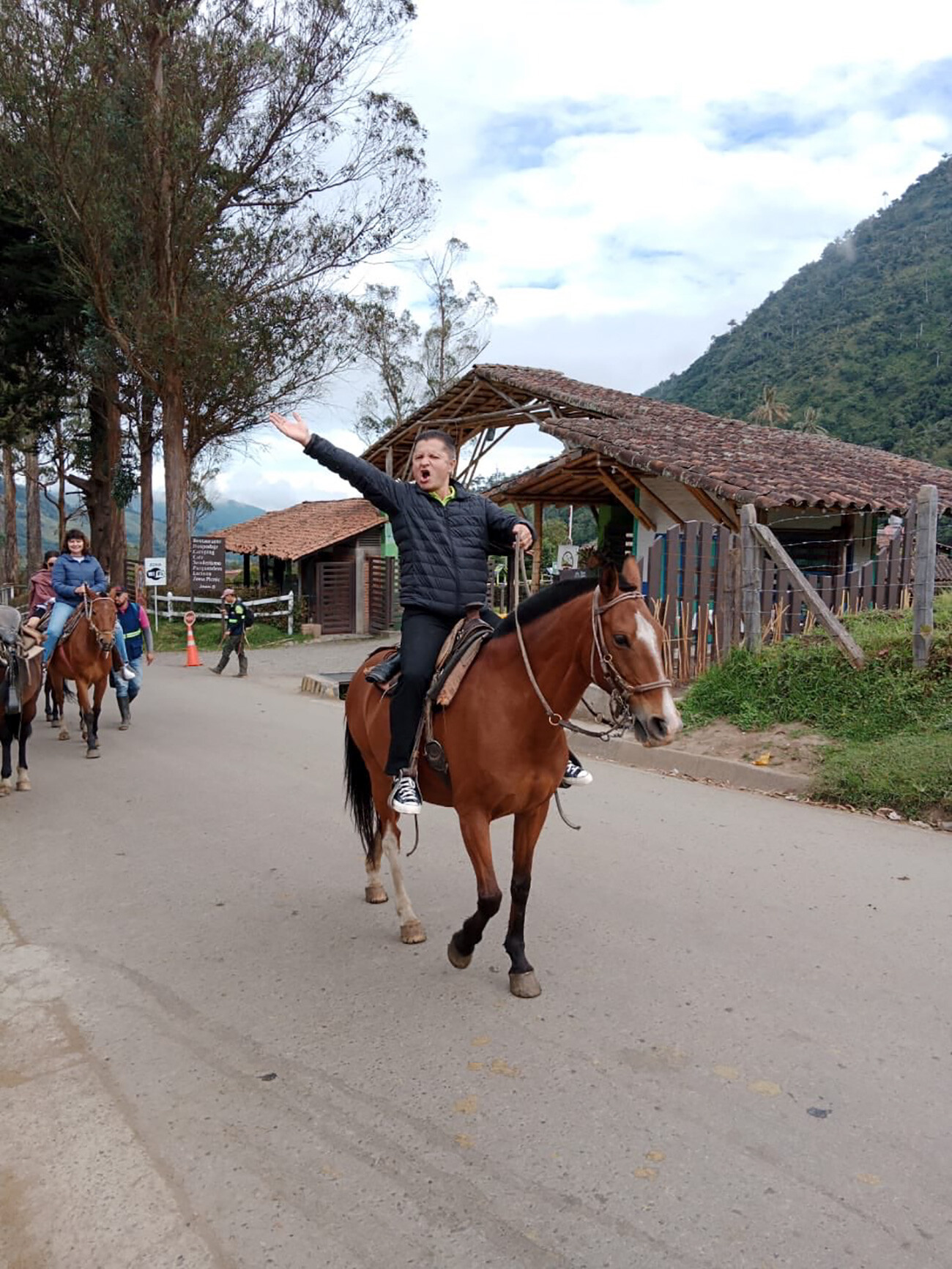
In Humberto's opinion, in Latin America, many people rely only on God, on higher powers. They only hope, but do nothing themselves. And Russians decide their own fate. "As a Russian, I still believe: God help those who help themselves."
Umberto has always been active and creative. In his homeland, he worked in a theater, on the radio, in dance and in a choir. So, in Russia, he joined a university ensemble where students from different countries staged their national dances. There, he met his future wife Yelena and finally decided to stay in Russia. He still lives in Moscow with his beautiful brunette from Saratov. They have children, friends, a country house, a garden, cats, a dog…
Humberto needed money to be able to travel to Colombia to see his family. So, he decided to earn some money by enrolling in a construction team. As a foreigner, to be allowed to build the Baikal-Amur Mainline, he wrote a statement: "I'm going to Siberia to help build communism."
"I still joke to this day that I was building communism for you," Humberto laughs.
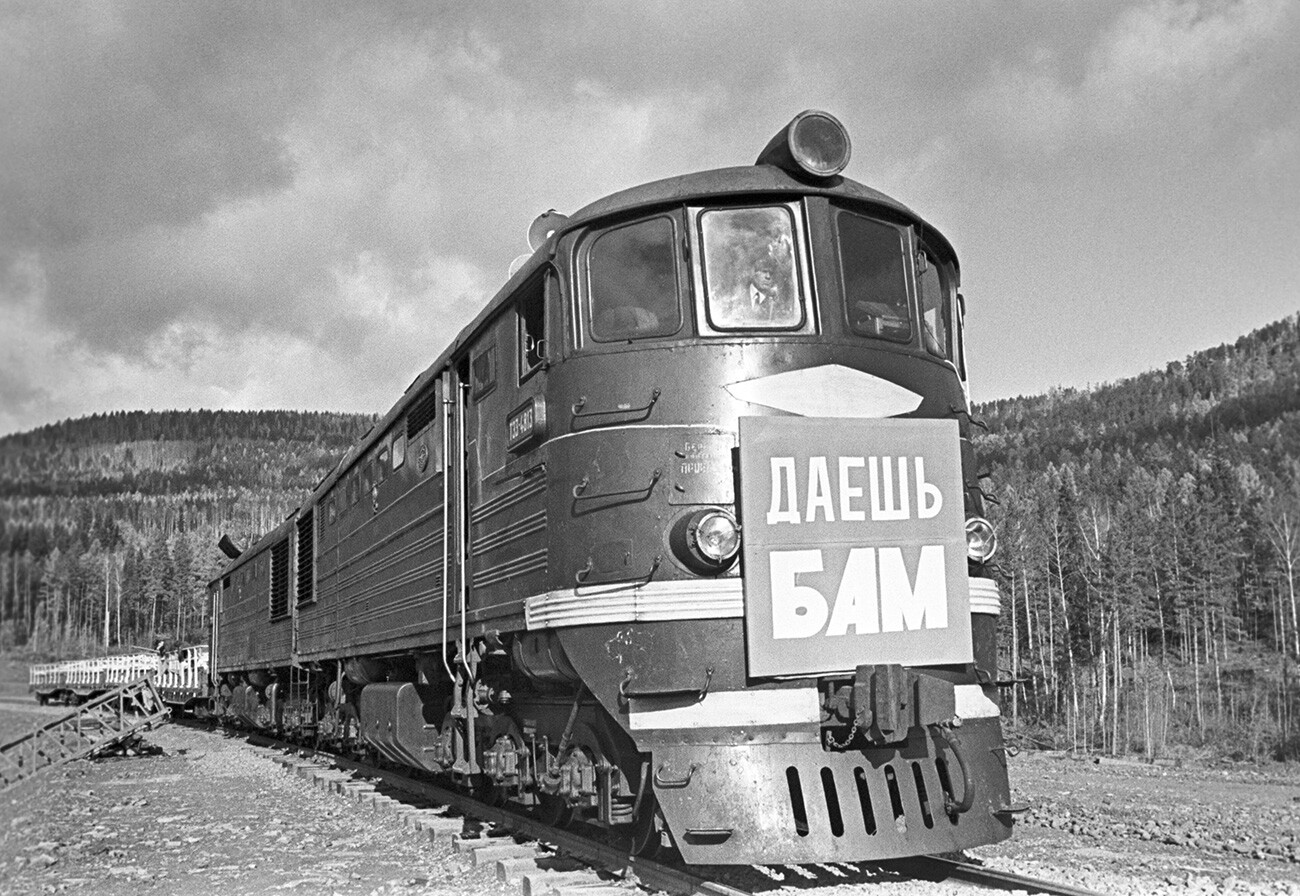
The trip helped him not only earn money, but also incredibly enrich his vocabulary of the Russian language, especially Russian curse words.
"I was interested in colloquial vocabulary. I walked around the Moscow dormitory with notebooks and avidly took notes after students from different union republics. Then, in Siberia, when the commander of a construction team learned about my interest in Russian obscene language, he sent me to a brigade of miners. There, I filled two notebooks at once!"
After the collapse of the USSR and the beginning of a free market economy, many people in Russia tried their hand at business. Humberto also made attempts at various undertakings. In particular, he drove Russian tourists abroad and welcomed foreigners in Russia.
"When any foreign tourists were about to fly home, I would warn them every time: don't take too much black caviar, there is a strict limit at customs. But, people did not listen, shoving these cans in their hand luggage, in their pants, in their hats. The border guards always found that caviar and would naturally confiscate it. And then, the tourists, in order not to leave the cans with the customs officers, would give them to me. You won't believe it, we ate this caviar from morning to night," recalls Humberto.
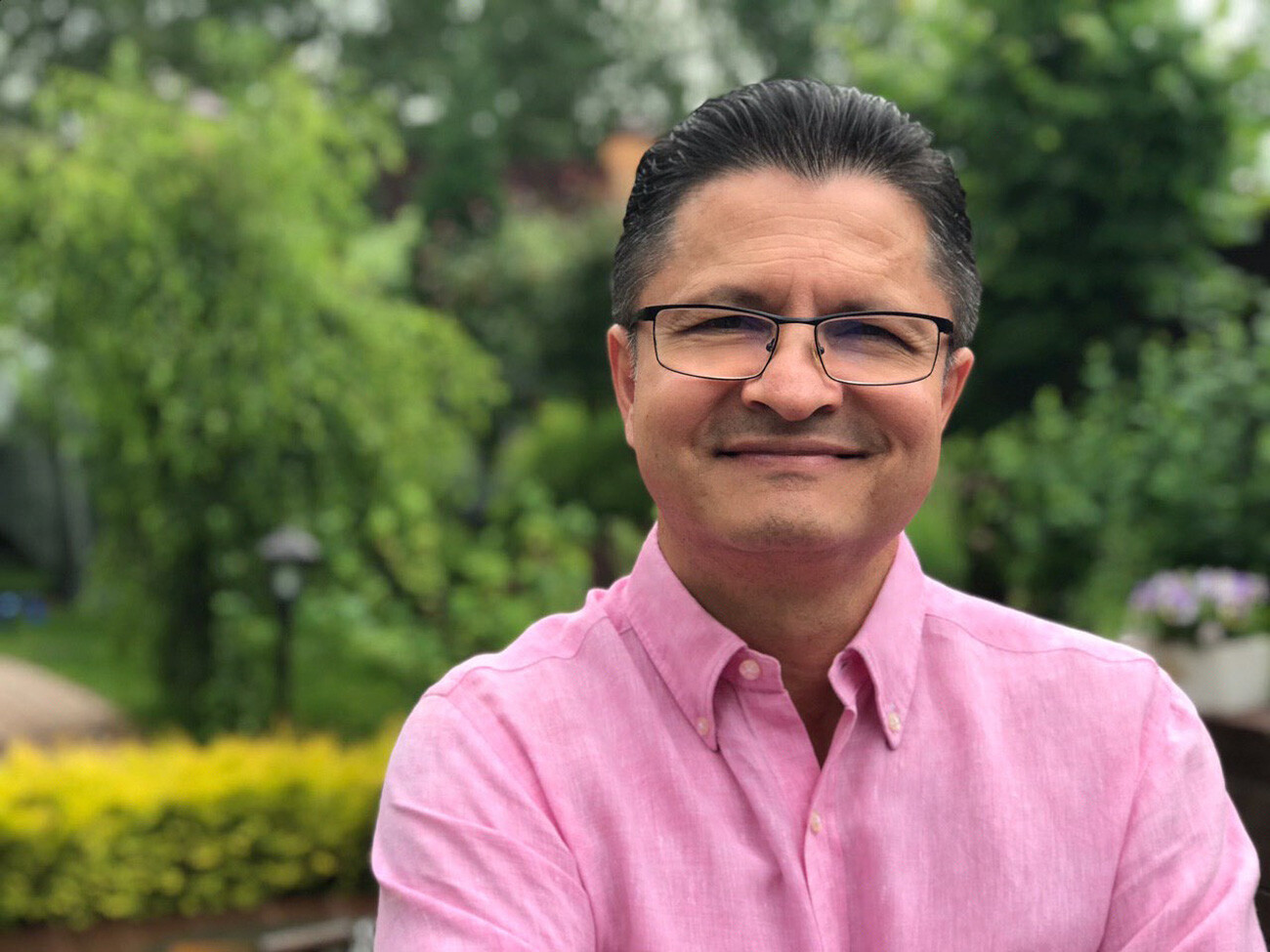
Many things happened to him in the 1990s, including racketeering and bankruptcy. In the end, Humberto returned to what mattered most, the language. And began teaching Spanish. After analyzing all the existing textbooks, he realized that they did not suit him. So he wrote his own, or rather a whole series of them called ‘Planeta Español’.
The full version of this interview was published in Russian in the ‘Nation’ magazine.
Dear readers,
Our website and social media accounts are under threat of being restricted or banned, due to the current circumstances. So, to keep up with our latest content, simply do the following:
If using any of Russia Beyond's content, partly or in full, always provide an active hyperlink to the original material.
Subscribe
to our newsletter!
Get the week's best stories straight to your inbox